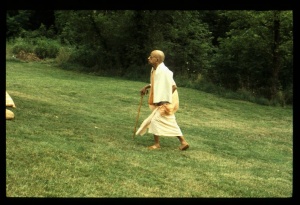CC Madhya 17.82 (1975): Difference between revisions
(Vanibot #0027: CCMirror - Mirror CC's 1996 edition to form a basis for 1975) |
(Vanibot #0020: VersionCompareLinker - added a link to the Version Compare feature) |
||
| Line 2: | Line 2: | ||
<div style="float:left">'''[[Sri Caitanya-caritamrta (1975)|Śrī Caitanya-caritāmṛta (1975)]] - [[CC Madhya (1975)|Madhya-līlā]] - [[CC Madhya 17 (1975)|Chapter 17: The Lord Travels to Vṛndāvana]]'''</div> | <div style="float:left">'''[[Sri Caitanya-caritamrta (1975)|Śrī Caitanya-caritāmṛta (1975)]] - [[CC Madhya (1975)|Madhya-līlā]] - [[CC Madhya 17 (1975)|Chapter 17: The Lord Travels to Vṛndāvana]]'''</div> | ||
<div style="float:right">[[File:Go-previous.png|link=CC Madhya 17.81 (1975)|Madhya-līlā 17.81]] '''[[CC Madhya 17.81 (1975)|Madhya-līlā 17.81]] - [[CC Madhya 17.83 (1975)|Madhya-līlā 17.83]]''' [[File:Go-next.png|link=CC Madhya 17.83 (1975)|Madhya-līlā 17.83]]</div> | <div style="float:right">[[File:Go-previous.png|link=CC Madhya 17.81 (1975)|Madhya-līlā 17.81]] '''[[CC Madhya 17.81 (1975)|Madhya-līlā 17.81]] - [[CC Madhya 17.83 (1975)|Madhya-līlā 17.83]]''' [[File:Go-next.png|link=CC Madhya 17.83 (1975)|Madhya-līlā 17.83]]</div> | ||
{{CompareVersions|CC|Madhya 17.82|CC 1975|CC 1996}} | |||
{{RandomImage}} | {{RandomImage}} | ||
==== TEXT 82 ==== | ==== TEXT 82 ==== | ||
<div class="verse"> | <div class="verse"> | ||
:ei-mata nānā-sukhe prabhu āilā | :ei-mata nānā-sukhe prabhu āilā 'kāśī' | ||
:madhyāhna-snāna kaila maṇikarṇikāya | :madhyāhna-snāna kaila maṇikarṇikāya āsi' | ||
</div> | </div> | ||
| Line 18: | Line 17: | ||
<div class="synonyms"> | <div class="synonyms"> | ||
ei-mata—in this way; nānā-sukhe—in great happiness; prabhu—Śrī Caitanya Mahāprabhu; āilā—came; kāśī—to the holy place named Kāśī; madhyāhna-snāna—afternoon bath; kaila—took; maṇikarṇikāya—to the bathing place known as Maṇikarṇikā; | ei-mata—in this way; nānā-sukhe—in great happiness; prabhu—Śrī Caitanya Mahāprabhu; āilā—came; kāśī—to the holy place named Kāśī; madhyāhna-snāna—afternoon bath; kaila—took; maṇikarṇikāya—to the bathing place known as Maṇikarṇikā; āsi'-coming. | ||
</div> | </div> | ||
| Line 25: | Line 24: | ||
<div class="translation"> | <div class="translation"> | ||
Finally the Lord | Finally the Lord with great happiness arrived at the holy place called Kāśī. There He took His bath in the bathing ghat known as Maṇikarṇikā. | ||
</div> | </div> | ||
| Line 32: | Line 31: | ||
<div class="purport"> | <div class="purport"> | ||
Kāśī is another name for Vārāṇasī (Benares). It has been a place of pilgrimage since time immemorial. Two rivers named Asiḥ and Varuṇā merge there. Maṇikarṇikā is famous because, according to the opinion of great personalities, a bejeweled earring fell there from the ear of Lord Viṣṇu. According to some, it fell from the ear of Lord Śiva. The word maṇi means | Kāśī is another name for Vārāṇasī (Benares). It has been a place of pilgrimage since time immemorial. Two rivers named Asiḥ and Varuṇā merge there. Maṇikarṇikā is famous because, according to the opinion of great personalities, a bejeweled earring fell there from the ear of Lord Viṣṇu. According to some, it fell from the ear of Lord Śiva. The word maṇi means "jewel," and karṇika means "from the ear." According to some, Lord Viśvanātha is the great physician who cures the disease of material existence by delivering a person through the ear, which receives the vibration of the holy name of Lord Rāma. Because of this, this holy place is called Maṇi-karṇikā. It is said that there is no better place than where the River Ganges flows, and the bathing ghat known as Maṇikarṇikā is especially sanctified because it is very dear to Lord Viśvanātha. In the Kāśī-khaṇḍa it is said: | ||
:saṁsāri-cintāmaṇir atra yasmāt | :saṁsāri-cintāmaṇir atra yasmāt | ||
:tārakaṁ | :tārakaṁ sajjana-karṇikāyām | ||
:śivo | :śivo 'bhidhatte saha-sānta-kāle | ||
:tad gīyate | :tad gīyate 'sau maṇi-karṇiketi | ||
:mukti-lakṣmī mahā-pīṭha-maṇis tac | :mukti-lakṣmī mahā-pīṭha-maṇis tac caraṇābjayoḥ | ||
:karṇikeyaṁ tataḥ prāhur yāṁ janā maṇi-karṇikām | :karṇikeyaṁ tataḥ prāhur yāṁ janā maṇi-karṇikām | ||
According to | According to the Kāśī-khaṇḍa, if one gives up his body at Maṇikarṇikā, he is liberated simply by remembering Lord Śiva's name. | ||
</div> | </div> | ||
Latest revision as of 10:56, 27 January 2020

A.C. Bhaktivedanta Swami Prabhupada
TEXT 82
- ei-mata nānā-sukhe prabhu āilā 'kāśī'
- madhyāhna-snāna kaila maṇikarṇikāya āsi'
SYNONYMS
ei-mata—in this way; nānā-sukhe—in great happiness; prabhu—Śrī Caitanya Mahāprabhu; āilā—came; kāśī—to the holy place named Kāśī; madhyāhna-snāna—afternoon bath; kaila—took; maṇikarṇikāya—to the bathing place known as Maṇikarṇikā; āsi'-coming.
TRANSLATION
Finally the Lord with great happiness arrived at the holy place called Kāśī. There He took His bath in the bathing ghat known as Maṇikarṇikā.
PURPORT
Kāśī is another name for Vārāṇasī (Benares). It has been a place of pilgrimage since time immemorial. Two rivers named Asiḥ and Varuṇā merge there. Maṇikarṇikā is famous because, according to the opinion of great personalities, a bejeweled earring fell there from the ear of Lord Viṣṇu. According to some, it fell from the ear of Lord Śiva. The word maṇi means "jewel," and karṇika means "from the ear." According to some, Lord Viśvanātha is the great physician who cures the disease of material existence by delivering a person through the ear, which receives the vibration of the holy name of Lord Rāma. Because of this, this holy place is called Maṇi-karṇikā. It is said that there is no better place than where the River Ganges flows, and the bathing ghat known as Maṇikarṇikā is especially sanctified because it is very dear to Lord Viśvanātha. In the Kāśī-khaṇḍa it is said:
- saṁsāri-cintāmaṇir atra yasmāt
- tārakaṁ sajjana-karṇikāyām
- śivo 'bhidhatte saha-sānta-kāle
- tad gīyate 'sau maṇi-karṇiketi
- mukti-lakṣmī mahā-pīṭha-maṇis tac caraṇābjayoḥ
- karṇikeyaṁ tataḥ prāhur yāṁ janā maṇi-karṇikām
According to the Kāśī-khaṇḍa, if one gives up his body at Maṇikarṇikā, he is liberated simply by remembering Lord Śiva's name.